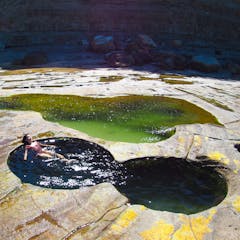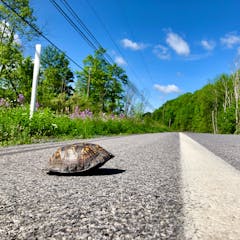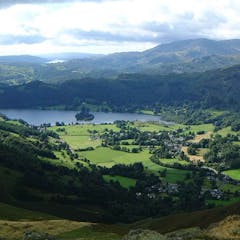
Articles on National parks
Displaying 1 - 20 of 134 articles

The concept of ‘nature prescriptions’ — where health professionals prescribe patients time outside to improve their health — is gaining traction, but conservation must be part of the equation.

Native forest logging was meant to be over in Victoria. Why are the chainsaws still going?

Proper biodiversity conservation requires long-term commitments to protect areas of land and water, as laid down in international guidelines.

Students are provided the opportunity to use America’s national parks as case studies for environmental issues and tough conversations in this course.

Visitor numbers to national parks are increasing. It means masses of people are being funnelled into potentially dangerous locations for which they may be unprepared.

For the proposed Great Koala National Park to actually help koalas, logging should stop and plantations should be added to the park.

The idea of Manifest Destiny inspired Americans to push west, leading to the creation of the first national parks. But those beliefs spelled removal for many Native American groups.

We need to understand how bears are affected by climate change, and how those stresses might create new risks for humans.

The content on social media platforms doesn’t always portray the locations accurately, setting unrealistic expectations and even luring tourists into trouble.

It’s not always “worth it for the ‘gram”. People risk life, limb, and the environment for a selfie – and land managers can’t keep up.

A newborn bison calf in Yellowstone National Park had to be euthanized after a visitor handled it in May 2023 – a recent example of how trying to help wild animals often harms them.

Crowding is increasingly affecting all kinds of public lands. Adjoining communities need to find ways to manage it, or risk harm to the attractions that make them a destination.

Now begins a long and difficult process to recover vast areas of forest after more than 50 years of destructive logging.

Governments and wildlife advocates are working to protect 30% of Earth’s lands and waters for nature by 2030. An ecologist explains why creating large protected areas should be a top priority.

The mountain range in south Wales is now officially only known by its native Welsh-language name

Invasive species cause billions of dollars in damage across the US every year. Hikers and backpackers can take simple steps to avoid spreading seeds and making the problem worse.

Conservation is a government job, right? Not any more. Here’s why the enormous growth in land managed by conservation NGOs is a boon to our environment

Plath’s sublime nature poetry deserves widespread appreciation for its unfettered joy and deep attunement to the natural world.

Lake Powell’s existential crisis is a unique opportunity to save a treasured landscape.

The idea that human activity threatens nature, and that it is important to protect wild places, dates back to the dawn of the Industrial Revolution.
